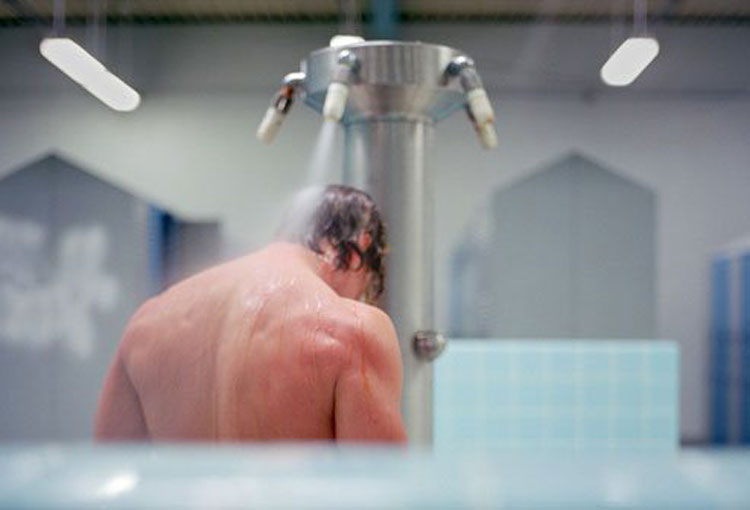Hair loss is very common among men, as roughly two-thirds will experience it by the age of 35. For females, roughly 40% of women will have some sort of hair loss by middle age, usually in the form of general thinning.
Although mostly attributed to genetics, both men and women can experience hair loss for a variety of other reasons as well. When you’re an athlete or someone that’s into fitness there are additional habits you should and shouldn’t have to prevent and control hair loss.
Don’t Skip the Shower. Ever.

The first 30 minutes following your workout or big game are pretty important. Keep a change of clothes on you if you don’t have time to shower, and definitely try to get into one before the end of the night. Leaving all that bacteria on your scalp can invite infection, and, in excess, sweat can actually plug up hair follicles. This can set up an inflammatory response that could lead to hair loss.
Careful with the Bun!
Many female (and male) athletes will tie their hair up during workout’s and training, which, let’s face it – can be a lot of the time in your day. If you find that your scalp hurts when you take your hair out at night then it may be time to curb back the number of hours that you have it up. With prolonged tie-ups, you can develop a condition called Traction Alopecia. It’s caused by prolonged tension of the hair and scalp. What’s more, if you need to wear your hair up opt for a fabric hair tie over a rubber one.
Mind Your Vitamins
While a supplement is by no means a cure, some research in animals links Vitamin D to the creation of new hair follicles. Another popular supplement is Vitamin B or Biotin. It has been shown to help nails grow, and might also be helpful in maintaining hair health.
Iron is another very important component of the health of your hair. Studies have shown that most athletes tend to be at an increased risk for deficiencies, and this is especially true for women. When it comes to your diet and vitamin needs, be sure to discuss your options with a licensed professional.
Chlorine is Powerful

Chlorine is toxic to your hair. When your hair gets wet with chlorinated water your hair shafts absorb the chlorine. This strips the hair of its natural lubricant, sebum. If you swim often your hair’s protective cuticles can crack, which leads to split ends and general breaking.
You can help to protect your hair and scalp before swimming by getting it wet with clean water first.
This will soak the hair shafts with clean water preventing them from absorbing chlorine. You can also coat your hair and scalp with conditioner or hide it under your swim cap.
After your swim, go for something natural (organic is best), and fragrance-free to condition your hair and scalp. Don’t be shy, lather it on. Your hair needs it.



